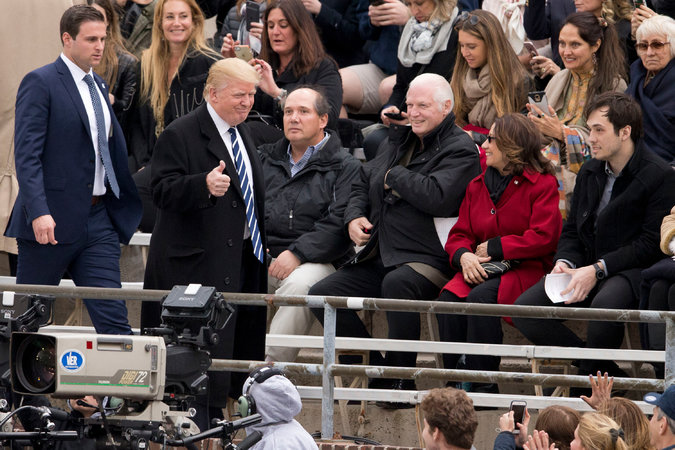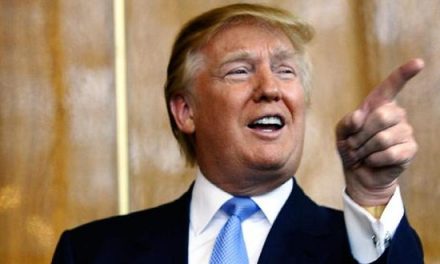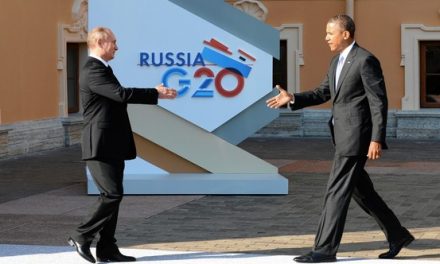By ASHLEY PARKER and JONATHAN MARTIN
Donald J. Trump recently coined a dismissive nickname for Senator Bernie Sanders: “Crazy Bernie.”
But that has not stopped Mr. Trump from borrowing lessons from Mr. Sanders — the Vermont senator whom he also frequently praises from the stump — on how to run against Hillary Clinton, his likely opponent in the general election.
On a range of issues, Mr. Trump seems to be taking a page from the Sanders playbook, expressing a willingness to increase the minimum wage, suggesting that the wealthy may pay higher taxes than under his original proposal, attacking Mrs. Clinton from the left on national security and Wall Street, and making clear that his opposition to free trade will be a centerpiece of his general election campaign.
As Mr. Trump lays the groundwork for his likely showdown with Mrs. Clinton, he is staking out a series of populist positions that could help him woo working-class Democrats in November. But in doing so, he is exacerbating the trepidation some Republicans already feel about his candidacy at a moment when the party typically rallies to its nominee.
Asked how Mr. Trump could reassure his own party, Senator Jeff Flake, Republican of Arizona, suggested the party standard-bearer needed something close to a complete overhaul. “He could start by saying, ‘I was just kidding,’ ” Mr. Flake said, bemoaning what he called Mr. Trump’s “protectionist” approach.
Yet Republicans hoping that their nominee-in-waiting will suddenly shed his brand of hard-edge nationalism to appeal to the party’s mainline leaders will be disappointed. In an interview, Mr. Trump said that if he is president, the North American Free Trade Agreement “will be renegotiated and probably terminated.”
Mr. Trump’s approach has scrambled longstanding assumptions about how the two parties can position themselves in a general election fight, and could augur at least a short-term shift in how a Republican presidential nominee campaigns. Until Mr. Trump’s successful campaign, unwavering support for free trade and the business community, a robust American presence in the world, and a commitment to deep tax cuts have been articles of faith for the modern Republican Party.
But Mr. Trump, who has also made attacks on illegal immigrants central to his campaign while vowing to protect Social Security and Medicare, is plainly going to run as more of a Sanders-style populist than as a conservative. And this approach suggests that the 2016 campaign will not be decided in the increasingly diverse states that represent the face of a changing nation — Colorado, Florida, Nevada and Virginia — but in the more heavily white Rust Belt, where blaming trade deals for manufacturing job losses provided resonant themes for Mr. Trump and Mr. Sanders during the primaries there.
Mr. Trump recently offered a taste of his coming line of attack on the campaign trail in Oregon, where he praised Mr. Sanders for highlighting Mrs. Clinton’s ties to the country’s largest financial institutions. “She’s totally controlled by Wall Street,” Mr. Trump said, echoing a Sanders rallying cry.
Roger J. Stone Jr., a longtime adviser to Mr. Trump, said he expected the presumptive Republican nominee to grow aggressive on the banks. “Who’s been tougher on bankers than Donald Trump?” asked Mr. Stone, suggesting Mr. Trump could appeal to some of Mr. Sanders’s supporters. “He’s taken them to the cleaners. I think he has a healthy skepticism and deep knowledge of bankers and how they operate. He’s going to be tough on Wall Street.” Mr. Trump has said that “the hedge fund guys are getting away with murder.”
Mr. Stone added that Mr. Trump will also have a built-in layer of defense as he appeals to blue-collar voters, because he will be less vulnerable to traditional Democratic attacks over Republican efforts to rein in entitlement programs. “Unlike all these establishment Republicans, he’s been adamant about never touching entitlements,” Mr. Stone said. “You can’t run that play on Donald Trump.”
If by abandoning the traditional Republican playbook Mr. Trump were to put Michigan, Pennsylvania and Wisconsin in the Republican column, as some of his aides suggested, he would swing 46 electoral votes from states that have voted for Democratic presidential candidates since the 1980s.

Donald J. Trump attending the graduation ceremony of his daughter, Tiffany, at the University of Pennsylvania in Philadelphia on Sunday. Matt Rourke/Associated Press
“We lost two elections trying to do this by the traditional electoral map,” said Senator Richard M. Burr of North Carolina, one of the Republican senators who has embraced Mr. Trump.
But for every voter Mr. Trump wins over with his ad hoc populism, he risks repelling others — including conservatives who are aghast at how, on some issues, he is trying to outflank Mrs. Clinton on the left. While he may put parts of the Midwest back into play, at least initially, his approach could also endanger his prospects in some states that usually lean Republican.
“I think he’s more likely to take Michigan than he is to take Arizona,” said Mr. Flake, whose state is home to a fast-growing Latino population.
The unease on the right with Mr. Trump’s ideological positioning spans the party’s factions, alarming national security hawks, fiscal conservatives focused chiefly on promoting free markets, and the Christian right.
And even when he has hit Mrs. Clinton from the left, he has also shown a flexibility that has positioned him on both sides of some issues. He has called for a higher minimum wage, for instance, but has also said the issue should be left to the states rather than have a federal increase. On foreign policy, too, his cautious approach to nation-building and intervention has been juxtaposed by bellicose remarks and a promise to be tougher on Iran and the Islamic State.
Representative Steve King, Republican of Iowa, said that questions about Mr. Trump’s core beliefs were ”a significant concern.”
“He needs to articulate deeper convictions on the issues that matter so much to conservatives,” said Mr. King, a hard-liner.
For others in the party, though, that moment has passed.
“He’s ceding Republicans who find his big-government approach antithetical to everything they believe in,” said Danielle Pletka, a senior vice president at the American Enterprise Institute. “He’s ceding Republicans who have long believed that America is a force for good in the world and needs to lead the world.”
In an interview, Mr. Trump rejected the notion he was shifting his appeal to Democrats. “The fact that I want strong trade deals doesn’t make me to the left of anybody,” he said. “I actually don’t think I’m to the left of Hillary Clinton.”
And the Clinton team, too, argues that Mr. Trump is out of step with Democratic voters.
“Donald Trump may try to make over his most dangerous and risky positions, but his opposition to the federal minimum wage, his tax cuts for businesses and the rich, and his reckless ideas on the use of nuclear weapons are all too big a risk to be in the Oval Office,” said Jesse Ferguson, a Clinton spokesman.
Two of the three pillars underpinning Mr. Trump’s campaign reflect his overarching “America First” populist ethos: a broad opposition to free trade, where he says the nation is getting a bad deal, and a foreign policy that is muscular in tone but argues against nation-building and excessive foreign intervention. The third major plank of his candidacy, vocal opposition to an immigration overhaul and a promise to build a wall at the nation’s southern border, also puts him at odds with most establishment-aligned Republicans.
Similarly, by pledging to leave entitlements untouched as baby boomers near retirement — one of several major issues on which he differs with leading Republicans like Speaker Paul D. Ryan, who recently said he was not yet ready to support Mr. Trump — he is repositioning the party away from the market-oriented politics it has been identified with for decades.
But Mr. Trump, who was not even a registered Republican until four years ago, has little attachment to the party’s rightward slant.
“Don’t forget, this is called the Republican Party,” he said recently on ABC’s “This Week.” “It’s not called the Conservative Party.”


















